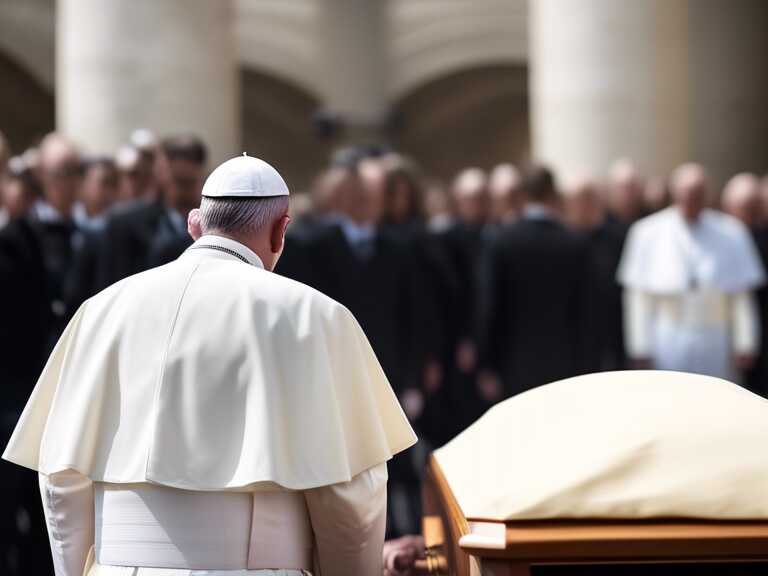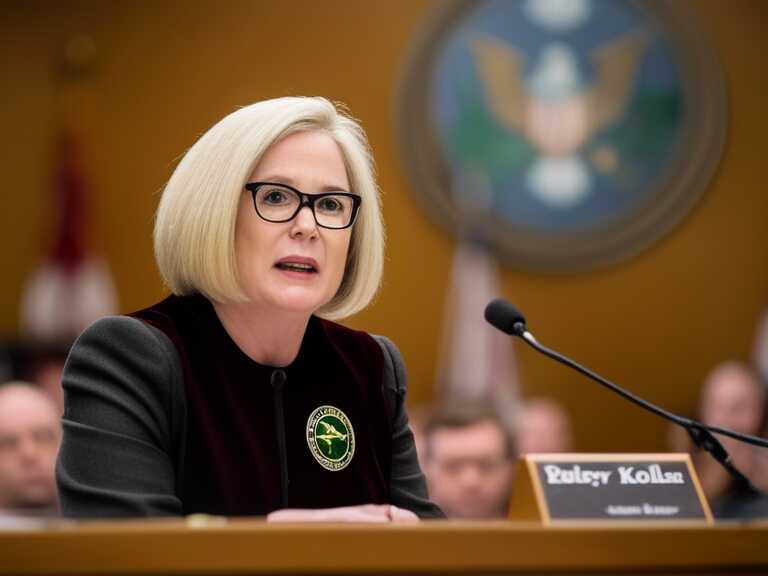
Japanese Prime Minister Fumio Kishida's Visit to Washington Spotlights Shared Concerns and Public Differences
Japanese Prime Minister Kishida visits Washington to discuss concerns about China, reaffirming US-Japan ties and seeking support on global issues.

Japanese Prime Minister Fumio Kishida embarked on his highly anticipated visit to Washington on Tuesday, shining a light on shared concerns regarding aggressive Chinese military actions in the Pacific. The visit comes at a unique juncture of public discord between the two nations over a Japanese company's intention to purchase an iconic U.S. company.
Kishida and his spouse made a preliminary stop at the White House on Tuesday evening, in advance of the official visit and formal state dinner scheduled for Wednesday. President Joe Biden aims to commemorate a longstanding ally, crucial to his Indo-Pacific policy, during the visit. Kishida becomes the fifth world leader to be honored with a state dinner by Biden since assuming office in 2021.
The leaders exchanged greetings, with First Lady Jill Biden warmly embracing Kishida's wife, Yuko. Subsequently, they posed for a photograph and briefly toured the premises before proceeding to an upscale seafood restaurant, BlackSalt, for dinner. The Bidens presented the prime minister with a handmade three-legged table from a Japanese American-owned company in Pennsylvania. In return, the President gifted Kishida a custom-framed lithograph and a two-volume LP set autographed by Billy Joel. Jill Biden bestowed upon Yuko Kishida a soccer ball signed by both the U.S. and Japanese women's national teams.
Official Engagements and Discussions
Prior to the White House visit, Kishida paid his respects by laying a wreath at Arlington National Cemetery and held meetings at the U.S. Chamber of Commerce, including discussions with Microsoft’s vice chairman and president, Brad Smith. The scheduled agenda for Wednesday includes talks and a joint news conference between Biden and Kishida. Following this, President Biden will host a state dinner in the East Room in honor of the Japanese leader, who has also been invited to address a joint meeting of Congress on Thursday, marking only the second time a Japanese leader has spoken before this body, with the first instance being in 2015 by Shinzo Abe.
The visit occurs against the backdrop of President Biden's recent announcement, expressing opposition to the planned acquisition of a Pittsburgh-based U.S. Steel by Japan's Nippon Steel. This divergence has unveiled a notable discord in the partnership at a time when the two leaders seek to reaffirm it. The President's stance revolves around the objective to sustain robust American steel companies driven by American steelworkers, as articulated in his opposition to the transaction.
However, Ambassador Rahm Emanuel downplayed the significance of this disagreement, emphasizing the multifaceted and substantial nature of the U.S.-Japan relationship beyond a singular commercial deal. Nippon Steel's proposed purchase of U.S. Steel for $14.1 billion in cash has raised concerns regarding the implications for unionized workers, supply chains and U.S. national security. While Kishida refrained from commenting on whether the acquisition would be raised in discussions with President Biden, he highlighted the reciprocal nature of American investments in Japan and vice versa to further intertwine the economies of the two nations.
Economic Collaborations and Investments
During his visit to the U.S. Chamber, Kishida emphasized the importance of mutual investments, envisioning deeper and inseparable ties between the economies of the two countries. Microsoft’s vice chairman, Brad Smith, announced a $2.9 billion investment in Japan over the next two years, aimed at expanding the company's cloud computing and artificial intelligence operations in the country. Additionally, Microsoft will collaborate with the Japanese government to enhance cybersecurity capabilities, signifying a critical investment in Japanese companies and the government.
Geopolitical Focus on the Pacific
President Biden's foreign policy emphasis on the Pacific region, amidst challenges posed by the Russian invasion of Ukraine and the Israel-Hamas conflict, has been evident. Notably, Biden convened a historic summit between the leaders of Japan and South Korea. Japan's robust support for Ukraine, demonstrated through substantial donations to Kyiv following Russia's invasion, has been well-received by the Biden administration, amid heightened concerns about China's assertive military posture. The Pentagon's recent announcement involving the U.S., United Kingdom, and Australia considering Japan's inclusion in the AUKUS partnership underscores the evolving geopolitical dynamics in the Pacific region, triggering objections from China.
Multilateral Engagements and Defense Discussions
Kishida's itinerary includes a meeting with President Biden and Philippine President Ferdinand Marcos Jr. on Thursday, focusing on the challenges in the South China Sea and the surrounding region. The leaders are expected to address plans to enhance the U.S. military command structure in Japan, where approximately 54,000 U.S. troops are stationed. White House national security adviser Jake Sullivan highlighted the significance of defense announcements, aimed at bolstering coordination and integration of forces, while also fostering partnerships with like-minded nations.
Furthermore, Kishida and Biden are anticipated to confirm Japan’s involvement in NASA’s Artemis moon program, along with its contribution of a moon rover developed by Toyota Motor Corp. This substantial contribution, valued at approximately $2 billion, is set to be the most expensive non-U.S. partner contribution to the mission to date.
Contributors to this report: Mari Yamaguchi in Tokyo, Josh Boak, and Didi Tang in Washington
Share news














